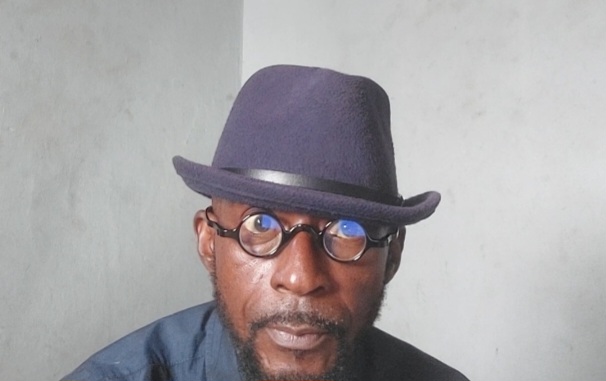
By Manny Ita
In recent days, Nigeria has once again been treated to a spectacle that, though regrettable, reveals the deeper dysfunction within our governance and security structures.
The now-viral confrontation between the Minister of the Federal Capital Territory (FCT), Nyesom Wike, and a uniformed naval officer stationed at a disputed site in the Gaduwa area of Abuja, has ignited fierce debate across the country.
On the surface, it appeared to be a clash of temperaments—an impulsive politician berating an officer of the armed forces in public. But beneath the surface lies a far more troubling narrative: the constitutional and moral erosion of military professionalism, and the persistent civil-military confusion that continues to undermine Nigeria’s democracy.
While it is easy to condemn Wike’s brash tone and lack of decorum, it is equally critical to confront the larger issue that the altercation exposes — that of serving military personnel acting under the orders of superior officers or private citizens, often in defence of personal or commercial interests rather than national security.
This trend not only violates constitutional provisions but also symbolizes the decay of institutional discipline within the armed forces and the dangerous commodification of the uniform.them According to multiple reports from the media, the FCT Minister had visited the Gaduwa area to inspect land allegedly under illegal occupation or development. Upon arrival, he encountered a uniformed naval officer who claimed to be acting “on orders from above.” Wike, visibly irritated, demanded to know under what authority the officer was preventing government officials from accessing the land.
When no official documentation was produced, the minister launched into a verbal tirade, accusing the officer of lawlessness and reportedly calling him a “fool.” The officer maintained that he was under orders from his superiors — reportedly for a retired senior military officer with interests in the disputed property.
Videos circulating online show Wike warning that no one, not even the military, was above the law, while the officer attempted to stand his ground. The confrontation has since divided public opinion: while some defend the minister’s stance as a defence of civil authority, others see his choice of words and tone as unbecoming of a senior government official.
At the heart of this controversy lies a fundamental constitutional question: can a serving military officer lawfully act on the orders of a retired officer or private individual in a civilian matter? The answer is unequivocally NO.
Nigeria’s Constitution (1999, as amended) and the Armed Forces Act (CAP A20, Laws of the Federation of Nigeria, 2004) are clear about the chain of command within the military.
A serving officer’s loyalty is to the Constitution of the Federal Republic of Nigeria, the Commander-in-Chief, and by extension, the legitimate commands transmitted through his or her service hierarchy.
Nowhere in military doctrine is there provision for military personnel acting on instruction to protect the private entity of a retired officer — and certainly not in a matter involving land disputes, which are purely civil in nature.
For a serving officer to take up guard duties on private property — reportedly on behalf of a retired senior officer — is not only unconstitutional but also an act of professional misconduct.
It undermines military discipline, blurs the distinction between public service and private interest, and erodes public confidence in the integrity of the armed forces.
If this officer’s presence was indeed authorized by a superior officer to protect a land under dispute and which was being reviewed by the government, then the minister’s confrontation, while poorly executed in manner, was justified in substance.
The Nigerian military, historically respected for its discipline and hierarchical order, has in recent decades seen an alarming infiltration of private loyalties and commercial compromises. Serving personnel, sometimes even in uniform, are found escorting private individuals, protecting property developers, or intimidating civilians at construction sites and business premises.
These are not isolated incidents; they reflect a systemic decay that has normalized the idea of soldiers-for-hire.
This phenomenon is particularly galling given Nigeria’s ongoing security crises.
From the unrelenting insurgency in the North-East to banditry, kidnapping, and communal clashes across the country, the military has repeatedly complained of being overstretched and under-resourced. Yet, paradoxically, we find personnel deployed to guard private estates, clubs, and warehouses in urban centres.
It is a tragic irony: while villages in Borno, Zamfara, and Plateau cry out for protection, soldiers are stationed at the gates of the wealthy in Abuja and Lagos. The message is unmistakable — the uniform, once a symbol of sacrifice and honour, has become a tool of private convenience and financial gain.
This is not the first time Nigerians have witnessed military officers acting beyond their lawful remit. From routine roadblocks that end in extortion or violence, to fatal encounters over trivial disputes — the misuse of military authority has become an unsettling feature of daily life. In several documented cases, soldiers have gunned down unarmed civilians over road rage, disputes at fuel stations, or mere arguments at checkpoints.
The underlying problem is impunity — a sense that the uniform confers immunity from accountability. When military personnel see themselves as enforcers of personal power rather than protectors of the republic, the distinction between a disciplined force and a lawless gang becomes dangerously blurred.
Thus, Wike’s verbal rebuke, however crude, can be understood as a symptom of a deeper frustration — the recurring spectacle of armed men obstructing civil authority under the guise of “orders from above.”
His choice of words may have been regrettable, but his anger was not misplaced. That said, two wrongs do not make a right. As a public officer of high standing, Wike is not merely an administrator but a representative of the state’s dignity. His duty is to enforce the law through institutions, not through public confrontation. Calling a serving officer a “fool” — regardless of the provocation — detracts from the moral high ground his position affords him. Leadership demands composure, restraint, and adherence to process, even in the face of insubordination.
A more prudent course of action would have been to direct the FCT Department of Development Control or the police to handle the situation within the bounds of due process, while reporting the errant officer to the Defence Headquarters for disciplinary action.
By resorting to public altercation, Wike inadvertently shifted focus from the officer’s illegality to his own temperament — allowing critics to question his decorum rather than the soldier’s misconduct. Nonetheless, it bears repeating that tone cannot invalidate truth.
While Wike’s conduct was indecorous, his message — that no one, military or civilian, is above the law — remains valid and constitutionally grounded. Nigeria’s post-military era democracy continues to wrestle with the shadows of authoritarianism.
After nearly three decades of intermittent military rule, the boundaries between civilian governance and military influence remain porous.
The armed forces, though officially under civilian control, still wield significant informal power across politics, business, and security sectors. The Wike incident exposes this imbalance.
A uniformed officer, emboldened by invisible backing from superior officers, feels entitled to defy a sitting minister — the lawful representative of the President in the FCT. This is not merely indiscipline; it is insubordination against the constitutional order itself.
It also highlights how the lingering culture of impunity within the military threatens to erode the principles of civilian supremacy that democracy depends upon.
For civil-military relations to function properly, boundaries must be respected.
Civil authorities must refrain from undermining the military’s internal discipline, while the military must not encroach upon civil governance or private economic activity.
The military’s loyalty is to the republic, not to individuals — serving or retired.
Part of the blame, however, lies not only in institutional weakness but also in socio-economic conditions.
Many soldiers, underpaid and poorly catered for, are easily lured into private service by the promise of better remuneration from wealthy civilians.
This economic vulnerability has created a parallel economy within the armed forces, where personal survival often trumps professional ethics. Retired officers, having built personal empires during or after service, often retain influence over younger soldiers, using them to enforce private interests.
Without robust oversight, then this cycle of informal patronage continues to erode the moral and operational foundations of the military.
To address this, Nigeria must revisit the welfare structure of its armed forces, ensuring that service members are adequately compensated and that private “security contracts” are strictly prohibited for serving personnel. A well-motivated soldier is less likely to sell his uniform to the highest bidder.
One of the most striking commentaries following the incident came from retired General Lucky Irabor, who emphasized that “the military uniform represents the authority of the state.”
He is right. But that authority carries responsibility, not privilege. When a soldier stands before civilians, his uniform is not a license to intimidate — it is a visual pledge of service, honour, and restraint. The public’s respect for the uniform is contingent upon the conduct of those who wear it.
When that respect is repeatedly betrayed by acts of lawlessness, extortion, or partisan service, the uniform loses its sacred aura, and the risk is that Nigerians no longer see the soldier as a defender of peace, but as a potential threat — a tragic reversal of meaning.
Thus, defending the sanctity of the uniform requires purging it of misuse. The public cannot be expected to respect what the institution itself allows to be debased.
To prevent a recurrence of such incidents and to restore public faith in both the military and civil authority, several urgent measures are needed:
1. Strict enforcement of military codes prohibiting private deployment of serving personnel for non-official duties. The Defence Headquarters must investigate and discipline any officers found acting under private or retired command. 2. Clearer coordination between the FCT Administration and security agencies to ensure that land enforcement operations are backed by lawful authority, minimizing the risk of confrontation.
3. Mandatory re-orientation and human rights training for security personnel to reinforce the principle of civilian supremacy and lawful engagement. 4. Review of soldiers’ welfare and compensation packages to reduce the temptation of private engagement.
5. Institutional accountability for political leaders as well: ministers and governors must learn to exercise authority with civility, allowing their institutions — not their tempers — to enforce the law.
The Wike-naval officer altercation is more than a clash of personalities; it is a mirror held up to Nigeria’s institutional disorder.
It exposes how blurred our lines of authority have become, how easily the uniform is prostituted for private gain, and how fragile the respect for civil authority remains, even after 25 years of democracy.
Yes, the minister’s words were harsh and unbecoming of his office.
But his underlying frustration speaks for millions of Nigerians who are weary of seeing armed men serve as bodyguards to the powerful while ordinary citizens are left at the mercy of bandits and terrorists.
The real scandal is not that Wike lost his temper; it is that a serving officer found himself on the service of private interests — in open defiance of the constitution he swore to uphold.
Until Nigeria confronts this dual crisis of civil indiscipline and military corruption, such spectacles will continue to play out in public, eroding trust in governance and threatening the foundations of democracy.
The uniform must return to its rightful place — in defence of the nation, not the pockets of the privileged. And civil authorities, too, must remember that power without decorum diminishes the dignity of the office they hold.
In the final analysis, the Wike episode is a cautionary tale: that authority must be exercised with responsibility, and service must remain to the state, not to self. Both the minister and the soldier have lessons to learn — but the greater burden rests on a country that must finally decide whether it wants a disciplined military or a marketplace of men in uniform.





